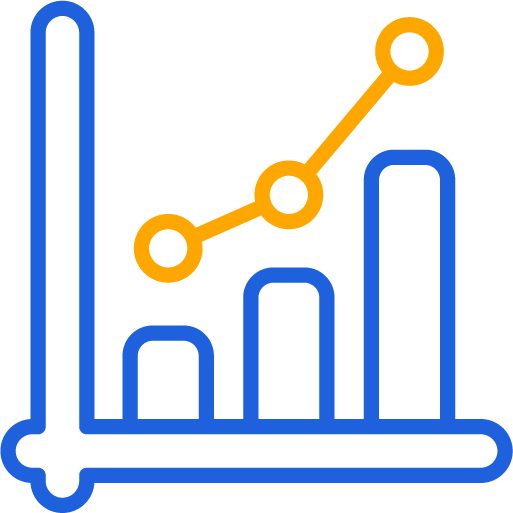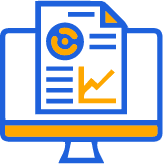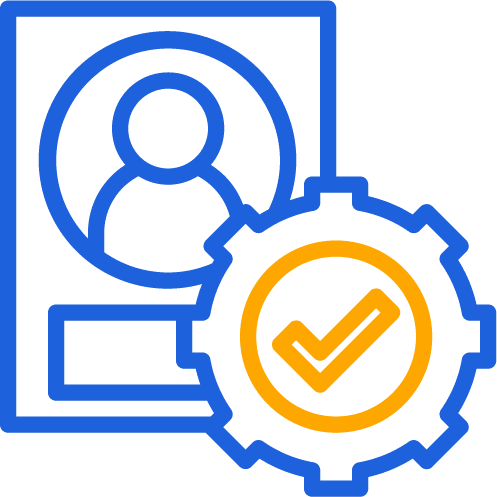Best Netherland Forex Brokers In 2023
When delving into the world of best forex brokers in Netherlands, selecting the best forex broker is a paramount decision. This holds especially true for best Netherland-based brokers. With the abundance of options available, it becomes essential to choose a reliable and well-regulated best Netherland forex brokers that aligns with your trading goals.
There are 17.1 million people living in the country of the Netherlands. The Euro, which is the currency of many other nations in the European Union, is the currency that is used as the national currency of this country. The De Nederlandsche Bank (DNB) is the name of the country’s central bank, and its key responsibilities include the promotion of financial stability and the regulation of banks, insurers, and other credit organisations. In addition to the DNB, another organisation in the Netherlands that regulates financial markets is called the Netherlands Authority for the Financial Markets (AFM). AFM is accountable for the regulation of the whole of the financial industry, which includes but is not limited to banks, insurance companies, investment companies, exchanges, and pension funds. In addition, it exercises oversight over the activities of companies that offer financial services in order to promote honest and productive market conditions.
Best Forex Brokers in Netherlands
Pepperstone – our best Netherland brokerage 1st choice
ThinkMarkets – Our best Netherland brokerage 3rd choice
MultiBankGroup– Our best Netherland brokerage 5th choice
What are the best forex brokers in Netherland in 2023?

Pepperstone is a CFD Broker. A CFD (Contract for Difference) broker is a financial services provider that allows traders to trade CFDs on various financial instruments, such as stocks, commodities, currencies, and indices. Pepperstone is also a Spread Betting broker. A spread betting broker is a financial services provider that allows traders to speculate on the price movements of various financial instruments, such as stocks, currencies, commodities, and indices, through spread betting.
Pepperstone is regulated by the FCA, CySEC, ASIC. Pepperstone scores 9 out of 10 on the regulation section. Pepperstone doesn’t charge an inactivity fee. Inactivity fee in trading refers to charges by some brokers or trading platforms to traders who do not actively trade or use their accounts for a certain period of time. Pepperstone doesn’t charge fees for deposits and it doesn’t charge fees for withdrawals. Pepperstone scores 10 out of 10 on the commissions and fees section.
You can read the full detail reviews of more than 10,000 words here
AvaTrade has grown into a significant online trading platform since its inception in 2006, with about 200,000 registered clients executing up to 2 million deals each month totaling over $60 billion in trading volume. AvaTrade is regulated by the Central Bank of Ireland, ASIC, IIROC, FSA, FSB, UAE, and the British Virgin Islands, every new customer must pass a few simple compliance tests to verify that you understand the risks of trading and are permitted to trade.
AvaTrade is one of the few brokers who offers both the MetaTrader 4 and MetaTrader 5 platforms. AvaTrade allows the user to perform a 0.01 Lot trade.
Trading Features:
- Allows for scalping
- Allows for hedging
- Minimum deposit is low.
Accounts offered:
- Mini account
- Standard account
- Islamic accountDemo account
- Micro account
Funding methods:
- Skrill
- Payoneer
- PayPal
- NetellerCredit cards
- Bank Transfer
You can read full reviews about AvaTrade here
Forex and contracts for difference (CFD) trading services are provided by ThinkMarkets, an Australian forex brokerage company which provides high quality services as best Netherland’s brokerage company. Traders have access to a wide variety of assets, including commodities, stocks, indices, and cryptocurrencies, amongst other types of financial assets, in a wide variety of markets. The FCA, FSCA, and ASIC are the regulatory authorities that are responsible for monitoring and controlling it. The money that is deposited into ThinkMarkets by its clients is stored in a separate bank account, and the firm only does business with the top-tier financial institutions. The year 2010 marked the beginning of operations for ThinkMarkets, which presently has its headquarters in the country of Australia serves clients based in Netherland.
ThinkMarkets’ minimal EUR/USD spread of 0.0 pips is quite a bit smaller than the average spread of 0.70 pips for this currency pair, which is reported by ThinkMarkets. It is essential to bear in mind that the only account that provides zero spreads is the ThinkZero account. There is a commission charge that must be paid of seven dollars (US) per lot for each and every round voyage. The spreads on the regular account are greater, despite the fact that there is no commission paid for using it.
Trading Features:
- Offers STP
- Low min deposit
Accounts offered:
- Demo account
- Zero account
- Standard account
- Islamic account
Funding methods:
- Credit cards
- Bank Transfer
- Skrill
- Neteller
You can read the full review here
Axi, which has its headquarters in Australia and was established in 2007, has grown to become one of the most best Forex brokers in Netherland. It has done this by using some of the most renowned trading platforms in the globe. These platforms provide traders access to the most latest market data on forex, CFDs, and indices, which in turn enables them to trade at rates that are continuously competitive.
Traders have access to a wide range of products from which to pick, including contracts for difference (CFDs) based on underlying financial assets such as stock indexes, metals, foreign currencies, and commodities. Axi’s web-based trading platform for its Netherland’s traders is also available in a number of other languages for users’ convenience.
Axi, Netherland’s best brokerage, also offers mobile trading, which ensures connection across all of the most important platforms and devices, and has servers located in New York, close to the exchange, to facilitate the execution of transactions more quickly. Additionally, it offers Expert Advisors for automated trading, as well as the choice to trade with either Standard or Pro accounts, regardless of whether the scenario is simulated or real.
- Allows hedging
- Offers STP
- Allows scalping
- Free VPS (For clients who trade 20 lots per month)
- Low minimum deposit
Accounts offered:
- Micro account
- Mini account
- Standard account
- Zero spread account
- VIP Account (Axi Elite)
- Demo account
- ECN account
- Islamic account
Funding methods:
- Bank Transfer
- Skrill
- Payoneer
- Credit cards
- Neteller
- Crypto (For clients based outside of Europe)
You can read the full review here
The MultiBank Exchange Group is a one of the best Netherland’s trading broker that offers services related to foreign exchange trading. Traders have access to a diverse selection of goods in a number of different marketplaces. These items include indices, shares, commodities, and currencies. It is needed that a minimum deposit of fifty dollars be made in order to open a live account, and it is regulated by ASIC, FSC, BaFin, CNMV, and FMA. On the other hand, MultiBank Group gives you access to a no-cost trial account so that you can get a feel for their system and try out different features in a risk-free environment. When compared to the average EUR/USD spread of 0.70 pips, the minimal EUR/USD spread offered by MultiBank Group, best Netherland forex brokerage company, is considered to be typical at 0.8 pips.
At MultiBank Group, you have the opportunity to trade over 20,000 distinct products, among which are more than 55 currency pairings. One of the few Netherland forex brokers that offers both the MetaTrader 4 and MetaTrader 5 trading platforms, Multibank Group is one of such brokers. Check out our MT4 vs MT5 comparison to learn more about the differences between the two platforms. In addition to this, MultiBank Group provides access to their own technology, known as Pure ECN Pro. Traders may do business on their choice of device owing to downloadable applications available for both Mac and Windows operating systems.
You can read the full review here
Netherland Forex Brokers Comparison
Compare Netherland forex and CFDs or make a side-by-side comparison of different forex and CFDs brokers in Netherland by using either the forex broker comparison tool or the summary table that is provided below. This broker list is arranged according to the overall rating that each company has on CompareBroker.io
Comparing Trading Cost of Netherland's forex brokers

Comparing Trading platform between Netherland forex brokers
Netherland’s best forex brokers offers trading platforms that provide access to the foreign currency market and enable traders to analyse market conditions, monitor positions, and place transactions.
Trading platforms for Netherland’s best forex brokers also let traders to execute deals. View a side-by-side comparison of the trading platforms that are offered by the most reputable forex brokers in Netherland, as determined by our own independent product testing.

Comparing investment opportunities between Netherland forex broker
We keep a careful eye on the availability of various financial products, including but not limited to social copy trading, forex trading (both CFD and spot), stock trading (both CFD and non-CFD), spread betting, exchange-traded funds (ETFs), and more. Within our comprehensive and impartial database of best Netherland’s fore brokers, these different forms of investments are monitored as variables in their own right.
Investigate the types of investments that are available at the best forex brokers in Netherland.


Frequently Asked Questions
How to trade forex
Trading forex involves buying and selling currencies with the goal of making a profit. It can be a complex endeavor, but I’ll provide you with a general overview of the steps involved in trading forex:
Educate Yourself: Before you start trading, it’s crucial to educate yourself about the forex market. Learn about basic concepts such as currency pairs, exchange rates, pips, lots, and different trading strategies. There are numerous online resources, courses, and books available to help you understand the fundamentals of forex trading.
Choose a Reliable Forex Broker: Selecting the right forex broker is essential. Look for a broker that is regulated by a reputable financial authority and offers a user-friendly trading platform. Consider factors such as spreads, commissions, leverage, and available trading tools.
Create a Trading Plan: A trading plan outlines your trading goals, risk tolerance, preferred trading style, and strategy. It should also include rules for entry and exit points, risk management, and position sizing. A well-defined trading plan helps you stay disciplined and make informed decisions.
Practice on a Demo Account: Most brokers offer demo accounts that allow you to practice trading with virtual money. This is a valuable step to gain practical experience and test your trading strategy without risking real funds.
Fund Your Trading Account: Once you’re comfortable with your demo trading, you can fund your live trading account. Deposits can often be made via bank transfer, credit card, or other payment methods.
Start Trading: With a funded account, you can start trading real money. Monitor the forex market, analyze currency pairs, and execute trades based on your trading plan. Remember to start with smaller position sizes and gradually increase as you gain experience.
Technical and Fundamental Analysis: Traders use both technical and fundamental analysis to make trading decisions. Technical analysis involves studying price charts, patterns, and indicators to predict price movements. Fundamental analysis involves analyzing economic indicators, news, and events that impact currency values.
Risk Management: Managing risk is crucial to long-term success. Never risk more than you can afford to lose on a single trade. Use tools like stop-loss and take-profit orders to limit potential losses and secure profits.
Stay Informed: Stay updated on global economic and political events that can influence currency markets. Economic calendars and news sources can help you anticipate market movements.
Continuous Learning: The forex market is dynamic, and continuous learning is essential. Keep refining your trading strategy, learning new techniques, and adapting to changing market conditions.
How to trade forex news?
Trading forex news involves leveraging market-moving economic announcements and events to make informed trading decisions. To effectively navigate this strategy, traders need a solid grasp of fundamental analysis and a comprehensive economic calendar. By anticipating the impact of key data releases such as GDP figures, interest rate decisions, and employment reports, traders can position themselves to capitalize on sudden price fluctuations. Successful news trading requires swift execution, risk management, and an understanding of market sentiment. Traders must also be cautious of heightened volatility and potential whipsaws that can occur during news releases. Adopting a news trading approach involves staying updated on economic developments, interpreting data in relation to market expectations, and implementing prudent risk management to mitigate potential losses while aiming to seize profitable opportunities.
How to trade forex for beginners
Trading forex as a beginner in 2023 follows the same fundamental principles as in previous years. Here’s a step-by-step guide tailored for beginners:
Educate Yourself: Start by learning the basics of forex trading. Understand concepts like currency pairs, pips, lots, leverage, and margin. Study different trading strategies, technical and fundamental analysis, and risk management.
Choose a Reliable Broker: Select a well-regulated forex broker that offers a user-friendly platform and suits your trading needs. Research factors like spreads, fees, available currency pairs, and trading tools. Ensure the broker is compliant with the latest regulations.
Open a Demo Account: Most brokers offer demo accounts. Use this to practice trading with virtual money. Familiarize yourself with the trading platform, test your strategies, and gain confidence before trading with real money.
Develop a Trading Plan: Create a clear trading plan that outlines your goals, risk tolerance, preferred trading style, and strategy. Define entry and exit criteria, position sizes, and risk management rules. Stick to your plan to avoid emotional trading.
Fund Your Live Account: Once you’re comfortable with demo trading, fund your live trading account with an amount you can afford to lose. Deposit methods may include bank transfers, credit cards, or e-wallets.
Start Small: Begin with a small amount of capital to manage risk. Avoid risking more than 1-2% of your trading capital on a single trade.
Use Risk Management Tools: Set stop-loss and take-profit orders on your trades to limit potential losses and secure profits. Adjust your position sizes according to your risk tolerance.
Practice Technical and Fundamental Analysis: Study price charts, patterns, and indicators for technical analysis. Pay attention to economic news and events for fundamental analysis. Combine both approaches to make informed trading decisions.
Stay Updated: Keep an eye on global economic and political news that could impact currency markets. Economic calendars and financial news websites are valuable resources.
Trade with Discipline: Stick to your trading plan and avoid making impulsive decisions. Emotions can lead to losses. Maintain discipline and patience.
Continuous Learning: Forex markets evolve, so continue learning. Attend webinars, read books, follow reputable trading blogs, and consider joining trading communities to learn from experienced traders.
Practice Patience: Success in forex trading takes time. Don’t expect immediate profits. Be patient, stay committed to learning, and gradually refine your trading skills.
Keep Records: Maintain a trading journal to track your trades, decisions, and outcomes. This helps you analyze your performance, identify strengths and weaknesses, and improve over time.
Stay Humble: Accept losses as part of the learning process. Stay humble, adapt to market changes, and never stop seeking knowledge.
How to trade forex Netherland?
Trading forex in the Netherlands follows a similar process to trading in other countries. Here’s a guide tailored for trading forex in the Netherlands:
Educate Yourself: Begin by learning the fundamentals of forex trading. Understand currency pairs, pips, lots, leverage, and different trading strategies. Study technical and fundamental analysis to make informed trading decisions.
Select a Regulated Broker: Choose a reputable forex broker that is regulated by a recognized authority such as the Netherlands Authority for the Financial Markets (AFM) or other trusted international regulatory bodies. Ensure the broker offers a suitable trading platform and meets your needs.
Open a Demo Account: Most brokers offer demo accounts. Use this account to practice trading with virtual money. Familiarize yourself with the platform, test your strategies, and gain experience without risking real funds.
Develop a Trading Plan: Create a trading plan that outlines your goals, risk tolerance, preferred trading style, and strategy. Define entry and exit criteria, position sizes, and risk management rules. Adhere to your plan to avoid impulsive decisions.
Fund Your Live Account: Once you’re comfortable with demo trading, fund your live trading account. Deposit methods may include bank transfers, credit cards, or electronic payment methods.
Start Small: Begin with a small amount of capital that you can afford to lose. Avoid risking more than a small percentage of your trading capital on a single trade.
Utilize Risk Management: Set stop-loss and take-profit orders on your trades to manage potential losses and secure profits. Adjust your position sizes based on your risk tolerance.
Employ Technical and Fundamental Analysis: Utilize technical analysis by studying price charts, patterns, and indicators. Stay informed about economic news and events that could influence currency markets for fundamental analysis.
Stay Informed: Keep track of global economic and political news that could impact currency markets. Refer to economic calendars and reputable financial news sources.
Trade with Discipline: Stick to your trading plan and avoid emotional decision-making. Emotional trading can lead to losses. Maintain discipline and patience.
How to trade forex with leverage In Netherland?
In the Netherlands, trading forex with leverage involves borrowing funds from your broker to increase your trading position beyond your available capital. Leverage can amplify both potential profits and losses. To trade forex with leverage, follow these steps:
Choose a Regulated Broker: Select a reputable forex broker regulated by the Netherlands Authority for the Financial Markets (AFM) or other trusted international regulatory bodies. Ensure they offer leveraged trading and provide clear information about their leverage ratios.
Understand Leverage Ratios: Different brokers offer varying leverage ratios. Common ratios include 1:50, 1:100, or higher. A 1:100 leverage ratio, for instance, allows you to control a position size 100 times larger than your invested capital.
Open an Account: Sign up for a trading account with the chosen broker. You may need to provide personal identification documents and go through a verification process.
Deposit Funds: Fund your trading account with the required initial deposit. Brokers often have a minimum deposit amount to unlock leverage.
Calculate Position Size: Determine your desired position size based on the leverage ratio. For example, if you have €1,000 and use 1:100 leverage, you can potentially control a position worth €100,000.
Manage Risk: Leverage magnifies risk, so implement robust risk management strategies. Set stop-loss orders to limit potential losses, and avoid risking more than a small percentage of your trading capital on a single trade.
Execute Trades: Use your trading platform to enter positions. Leverage is automatically applied to your trades, allowing you to control larger positions with your available capital.
Monitor the Markets: Keep a close eye on market movements. Leverage can amplify both gains and losses, so stay informed and adjust your trading strategy accordingly.
Close Positions: As your trades move in your favor, you can close them to secure profits. Conversely, if a trade goes against you, decide when to cut your losses.
Can I trade with forex with $100
Yes, you can start trading forex with as little as $100. Many brokers offer micro or mini accounts that allow you to trade with a small initial deposit. These accounts provide an opportunity for beginners to get a feel for real trading while managing their risk. With a $100 investment, you can take advantage of leverage provided by your broker, which allows you to control a larger position size than your initial capital.
However, it’s important to approach trading with caution and a realistic mindset. While starting with a small amount is possible, trading with a limited capital requires careful risk management and a focus on preserving your funds. You should be prepared for the potential of both gains and losses, and it’s advisable to start with smaller position sizes and gradually increase as you gain experience and confidence.
Remember that successful forex trading involves continuous learning, practice, and discipline. It’s recommended to first practice on a demo account to familiarize yourself with the platform and your trading strategy before transitioning to live trading with real money.
Is forex trading legal in Netherland for international students
Forex trading is legal in the Netherlands for international students, provided they adhere to the country’s financial regulations and meet the necessary requirements. International students in the Netherlands have the opportunity to engage in forex trading as long as they do so through regulated and authorized brokers. These brokers are overseen by the Netherlands Authority for the Financial Markets (AFM) to ensure fair and transparent trading practices.
However, it’s essential for international students to be aware of their legal and tax obligations when participating in forex trading. They should familiarize themselves with the local regulations, tax implications, and any restrictions that may apply to their specific situation. Seeking guidance from financial advisors or legal professionals can help international students navigate the intricacies of forex trading within the Netherlands’ legal framework and ensure compliance with all relevant laws.
Is forex trading safe?
Forex trading, like any form of financial trading, carries inherent risks and rewards. While it offers the potential for significant profits, it’s important to recognize that forex trading is not without its challenges. The safety of forex trading depends on various factors, including the trader’s knowledge, experience, risk management practices, and the broker they choose.
Regulated and reputable forex brokers strive to provide a secure trading environment. They adhere to strict regulatory guidelines, segregate client funds from their operational funds, and implement advanced security measures to protect traders’ sensitive information and transactions. However, even with these precautions, there is no absolute guarantee against unforeseen market events, technical glitches, or human errors that can lead to losses.
To enhance safety in forex trading, traders must educate themselves thoroughly about the market, develop a solid trading plan, and practice disciplined risk management. This includes using tools like stop-loss orders and avoiding overleveraging. Novice traders are encouraged to start with a demo account to gain practical experience without risking real money.
Ultimately, the safety of forex trading lies in the hands of the trader. By approaching the market with knowledge, caution, and a well-defined strategy, individuals can mitigate risks and increase their chances of achieving success while navigating the dynamic world of forex trading.
Best Netherland Forex Brokers
The best forex brokers in Netherland charge a variety of commissions, which we have outlined in the table below.


























